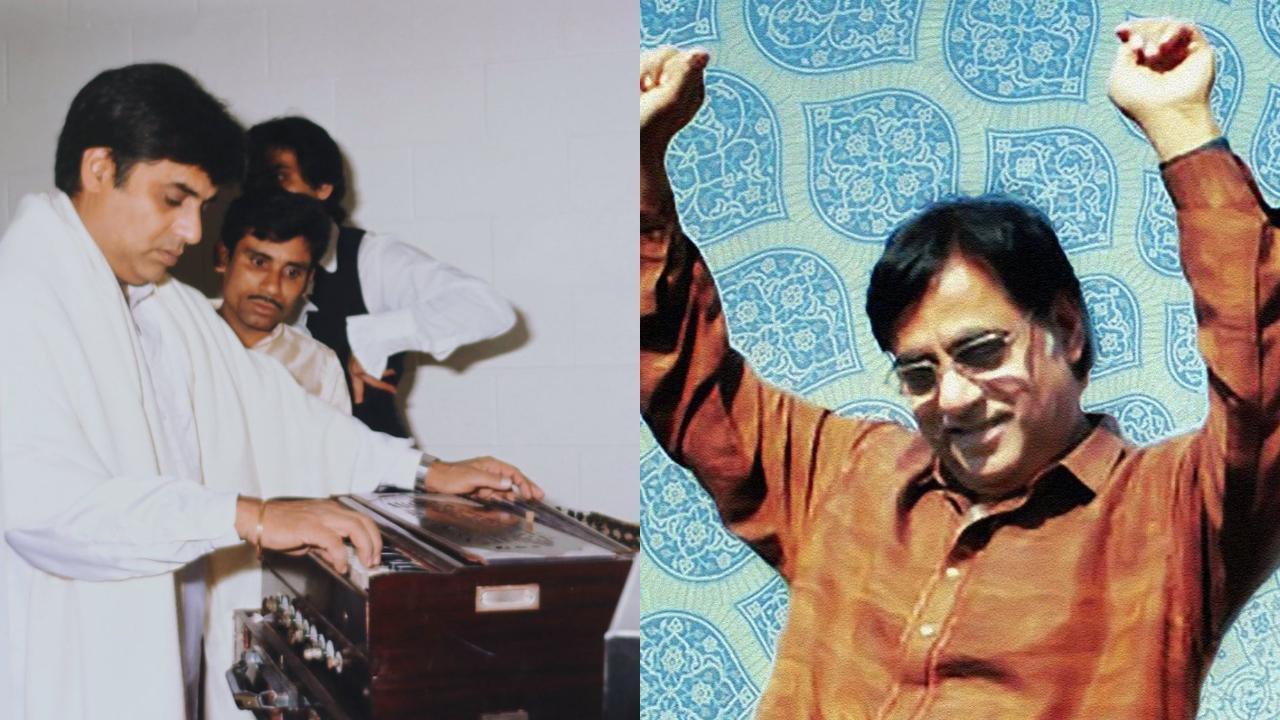
The Indian music world still reverberates with the echoes of Jagjit Singh’s haunting voice, as it has been 13 years since this legend of ghazals passed away on October 10, 2011. As we mark this somber anniversary, the indelible legacy Jagjit Singh left behind continues to captivate hearts and remind us of his monumental contributions to music.
Born Jagjit Singh Dhiman in Rajasthan, he was nurtured in a Namdhari Sikh family, a modest beginning that belied the extraordinary influence he would have on Indian music. The son of Amar Singh Dhiman and Bachan Kaur, Jagjit Singh went on to find his voice and musical roots in the bustling city of Bombay in 1965, post his graduation from DAV College in Jalandhar. Here, his path crossed with Chitra Dutta, a fellow musician, who became his life partner in 1969 and later the mother of their son, Vivek.
Jagjit Singh is universally recognized for his pivotal role in reviving the classical art form of ghazals, a genre that he made accessible to the masses, liberating it from its restrictive image of being an elite form of poetic expression. His ability to sing in multiple languages only broadened his appeal, allowing him to reach a diverse audience with his poetic renditions.
His distinguished Bol-pradhan approach, emphasizing the lyrical content of a song above all else, set him apart in the music industry. This method brought to the forefront the rich tapestry of emotions woven into the lyrics, thus enhancing the listener’s experience manifold. It was not just the melody but the soul of the words that his music celebrated, earning him a place in the pantheon of great musicians.
Renowned for his slow, soothing, and calming songs, Jagjit Singh’s work challenged, and successfully debunked, the notion that ghazals were a complex, inaccessible art form. His tracks like “Tumko Dekha To Ye Khayal Aaya” captured the essence of finding comfort in love amidst life’s tumultuous journey. Another masterpiece, “Tum Itna Jo Muskura Rahe Ho” from the film Arth, offered solace and an understanding nod to those navigating the pain of heartbreak.
.
In a career that was tragically cut short, Jagjit Singh’s music exhibited a profound unpredictability—some songs, despite their seemingly somber undertones, left the audience with a flicker of hope, while others masquerading a joyous beginning would inevitably bring a tear to the eye. This ability to touch on the varied spectrum of human emotion is a testament to the deep, emotional resonance of his work.
In 2011, the year he turned 70, Singh embarked on an ambitious plan to celebrate his milestone birthday with 70 concerts worldwide—a testament to his enduring passion and commitment to his craft. Unfortunately, fate intervened, and he succumbed to a brain hemorrhage, leaving a void in the music world.
Beyond the vibrant music that continues to define his legacy, Jagjit Singh was an ardent philanthropist, lending his voice and support to various causes. He worked closely with charities such as CRY, Save the Children, and ALMA, showcasing a remarkable depth of character that complemented his musical brilliance.
In 2003, in recognition of his invaluable contributions to Indian music and culture, the Government of India honored Jagjit Singh with the Padma Bhushan. This accolade was not just a nod to his musical genius but also his efforts to make music a bridge that connected humanity.
Thirteen years may have passed since his passing, but Jagjit Singh’s music refuses to fade into forgetfulness. His ghazals remain timeless, inspiring millions across generations. Though he is gone, his voice, the embodiment of the quintessential ghazal spirit, continues to stir the souls of countless listeners. Such is the enduring legacy of the maestro of melancholy, a legacy that will unfurl through the corridors of time eternally.












